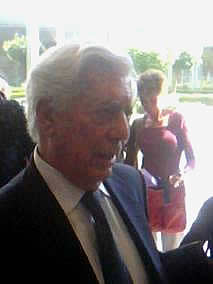
What is on the mind of Llosa is the increasing specialization that technology requires, making the gap between the specialist and the layman is increasing. The impression arise that digitization brought the two cultures, that of alpha and beta, more closely together. But the question is whether this is really true. In any case, Vargas Llosa wants the science and culture (arts and humanities) distinguished again from each other to accentuate the importance of culture.
In the title of his lecture Llosa understands among the lost culture the culture that is in principle accessible and open to all: the paintings of Velázquez and Picasso, Mozart's music, the plays of Shakespeare and Molière, the books of Cervantes, Faulkner and Borges. Culture which he calls "the shared space'. That is permanent culture, different from the world of science which always progress is made so that the previous invention disappears. That 'shared space' of culture would ensure connectedness between people. They can communicate with each other, not hindered by language, traditions, beliefs and times.
According to Llosa, the problem is that culture is disappeared. "The Culture That Was" is a nostalgic reading, in which Llosa engrossed in the good old days where the beautiful, the good and true concepts were still untouchable. Then, culture knew still an elite who showed us the way, when beauty was still an undisputed concept, when authority was still recognized when good and evil were distinguishable. When art was art.
According Llosa, culture is no longer special artistic achievements of artists, but it became something common: everything has become culture, such as the cultural relativist anthropologists say. Anthropologists do not make differences between cultures, whether primitive or developed. One is not superior to the other. Also disappearance of walks of life creates an egalitarian culture. Culture should be available to everyone, so culture has to popularize. High and low culture are no longer valid. A tearjerker is worth as much as a sonata by Chopin.